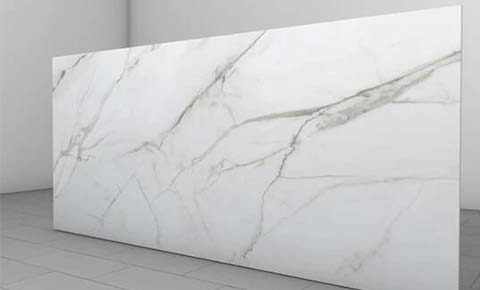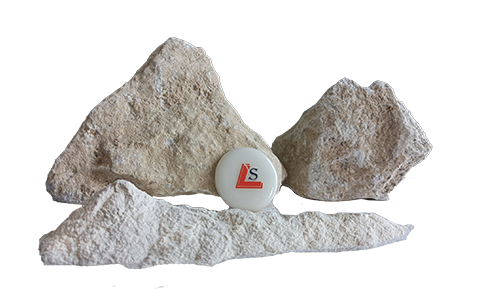
Sintered stone, known for its robustness and versatility, represents the cutting edge in ceramic slab technology. This material is manufactured from natural raw materials, subjected to advanced processing techniques, and formed using high-pressure machinery exceeding 15,000 tons. Following pressing, the material is fired at temperatures above 1200°C. The result is a high-performance ceramic material that can be cut, drilled, polished, and tailored to various sizes and shapes. Sintered stone is increasingly popular in home and kitchen applications due to its exceptional properties.

Sintered stone, or ceramic slab, stands out for several reasons:
Sodium feldspar, or albite (NaAlSi3O8), plays a crucial role in the manufacture of sintered stone. Feldspars are tectosilicate minerals that are indispensable in the ceramics industry due to their alumina (Al2O3) and sodium oxide (Na2O) content.

Fluxing Agent: Sodium feldspar acts as a flux, which lowers the melting temperature of other raw materials used in sintered stone production. This property is crucial during the high-temperature firing process. By lowering the melting point, sodium feldspar helps achieve a homogenous and dense material, enhancing the structural integrity of the sintered stone.
Enhanced Durability: The alumina content in sodium feldspar contributes to the hardness and scratch resistance of sintered stone. This makes the material highly durable, able to withstand everyday wear and tear, and suitable for high-traffic areas and heavy-use surfaces like kitchen countertops.
Improved Workability: The presence of sodium feldspar in the raw mix ensures a more workable material during the pressing and shaping processes. It enhances the plasticity and cohesion of the mix, allowing for the production of large slabs without defects. This workability is essential for achieving the precise dimensions and shapes required in modern interior design.
Aesthetic Qualities: Sodium feldspar contributes to the aesthetic versatility of sintered stone. It aids in achieving a wide range of colors and finishes, from matte to high gloss, and helps replicate the appearance of natural materials such as marble and granite. This versatility makes sintered stone an attractive option for designers and homeowners alike.
Environmental Benefits: Using sodium feldspar in the production of sintered stone is environmentally beneficial. As a naturally occurring mineral, it reduces the need for synthetic additives. Additionally, the durability and longevity of sintered stone mean fewer replacements and less waste over time.
Sintered stone’s properties make it particularly suitable for various applications in home and kitchen environments:
Sodium feldspar is indispensable in the production of sintered stone, enhancing its physical properties, aesthetic versatility, and environmental sustainability. As sintered stone continues to gain popularity in home and kitchen applications, the role of sodium feldspar ensures that these ceramic slabs meet the high standards of durability, workability, and beauty demanded by modern consumers. The innovative use of this mineral in sintered stone production exemplifies the fusion of natural resources and advanced technology, paving the way for superior building materials in the contemporary market.

Whether you have questions or you would just like to say hello,Contact us!
Call Anytime:
+86 15837207537Send E-mail:
info@lsakminerals.comAddress:
Anyang City , Henan Province, China.